Unlike movies, which I follow pretty closely, and the token effort I make to follow what happens in the realms of TV and music, I don’t really pay attention to what’s new in books. I do read a fair bit, but I get most of my books in second-hand bookstores, picked from a lengthy, half-remembered mental list of things I vaguely think I’d like to read. So basically, there are a lot of gaps, even among books that I’m pretty sure I’ll really enjoy when I read them. But hey, maybe in 10 or 15 years, I’ll be able to put together a proper list. Until then, what we got is what we got, and here’s what we got. Feel free to tell me what else I should have read by now.

- Nixonland, Rick Perlstein. Covering the rise of the the brilliant and amoral Richard Nixon and the not-unrelated fracturing of American politics and society, this is one of the most fascinating history books I’ve ever read.
- Herzog on Herzog, Paul Cronin and Werner Herzog. A series of long interviews with German auteur/professional daydreamer Werner Herzog, in which he talks about his life, films and idiosyncratic philosophy. And chickens.
- Jimmy Corrigan, The Smartest Kid on Earth, Chris Ware. Incredibly dense and painfully sad, even as a lifelong comics reader, this was a real revelation about what a graphic novel could be.
- 2666, Roberto Bolaño. A degree in English literature has left me with a distinct distaste for the explicitly “literary”, something this massive novel flirts with, but ultimately leaves behind in favour of pulpy mystery. It’s like walking the streets of a strange city alone late at night.
- The Terror, Dan Simmons. Chilling historical horror novel about the doomed 1845 Franklin expedition, which sailed into the arctic aboard the aptly-named HMS Terror and met an ignoble end of madness, starvation and cannibalism. Impossible to read unless buried under warm blankets with a hot mug of tea in hand.
- All-Star Superman, Grant Morrison and Frank Quitely. After a lost decade of continuity obsession and “darker-and-edgier” wanking, superhero comics have been making steps toward readability again, as writers like Morrison, Millar and Bendis have been rebuilding the stories and characters that made superheroes appealing to begin with. This is the best of what I’ve read, a stripped-down and poignant new myth of Superman.
- Under the Banner of Heaven: A Story of Violent Faith, Jon Krakauer. Krakauer juxtaposes the story of modern fundamentalist offshoots of Mormonism with the bloody history of the LDS to look at the dark side of religion in America.
- Scott Pilgrim, Bryan Lee O’Malley. O’Malley’s brilliant ongoing series of graphic novels uses his obsessions with videogames, manga and Canadian indie pop to inform this unexpectedly moving and original story of a Toronto slacker who must defeat his new girlfriend’s seven evil exes.
- Maximum City: Bombay Lost and Found, Suketu Mehta. An Indian-American writer revisited Mumbai after a decades-long absence and sought out the entrepreneurs, gangsters and transvestite dancers that have made the city, and recorded their stories.
- A Heartbreaking Work of Staggering Genius, Dave Eggers. Definitely attracted its share of detractors, and a lot of the criticisms are valid, but I still enjoy this book immensely for its wit, humanity and way with language.

Do we have honourable mentions? Yes, we have honourable mentions!
World War Z, Max Brooks.
Louis Riel: A Comic-Strip Biography, Chester Brown
A Brief History of Nearly Everything, Bill Bryson.
The Amazing Adventures of Kavalier & Clay, Michael Chabon.
JPod, Douglas Coupland
American Gods, Neil Gaiman.
The Elegant Universe, Brian Greene.
On Intelligence, Jeff Hawkins
Areas of my Expertise, John Hodgman.
Born Standing Up, Steve Martin
Asterios Polyp, David Mazzucchelli
Kafka on the Shore, Haruki Murakami.
The Botany of Desire, Michael Pollan
Fast Food Nation, Eric Schlosser.
Y: The Last Man, Brian K. Vaughan and Pia Guerra
Fables, Bill Willingham et al

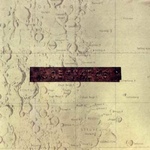
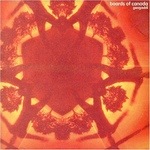
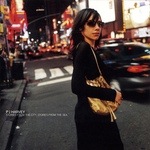
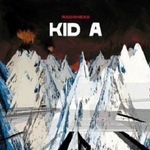
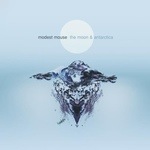
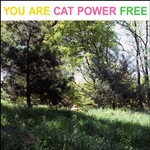


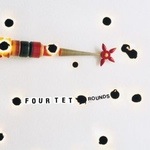
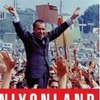 I know it’s a cliché, but the older I get, the more interested I become in history. I have no romantic view of the past, though — I read history mostly as painfully slow progress punctuated by awful mistakes which cast very long shadows through the decades. And so I was fascinated by Nixonland: The Rise of a President and the Fracturing of America, Rick Perlstein’s 896-page political history. The eponymous “Nixonland” is the America that created Nixon and that he, better than anyone (except possibly Ronald Reagan), was able to exploit: a country with two visions that are both sincere, deeply held — and utterly incompatible. However, the Nixonland divide isn’t strictly between liberal and conservative, but between the privileged insider “Franklins” and striving outsider “Orthogonions”. The names are from two cultural clubs at Wittier College. When the former rejected Nixon for his poverty and working-class manners, he started the second.
I know it’s a cliché, but the older I get, the more interested I become in history. I have no romantic view of the past, though — I read history mostly as painfully slow progress punctuated by awful mistakes which cast very long shadows through the decades. And so I was fascinated by Nixonland: The Rise of a President and the Fracturing of America, Rick Perlstein’s 896-page political history. The eponymous “Nixonland” is the America that created Nixon and that he, better than anyone (except possibly Ronald Reagan), was able to exploit: a country with two visions that are both sincere, deeply held — and utterly incompatible. However, the Nixonland divide isn’t strictly between liberal and conservative, but between the privileged insider “Franklins” and striving outsider “Orthogonions”. The names are from two cultural clubs at Wittier College. When the former rejected Nixon for his poverty and working-class manners, he started the second. The new Caribou album, Andorra, is terrific — kind of a wistful sixties psychedelic pop version of Caribou that perfectly fits walking though downtown Vancouver in the fall. I’ve been listening to the entire album pretty much daily. My roommate even liked it so much
The new Caribou album, Andorra, is terrific — kind of a wistful sixties psychedelic pop version of Caribou that perfectly fits walking though downtown Vancouver in the fall. I’ve been listening to the entire album pretty much daily. My roommate even liked it so much 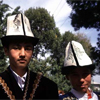 I’m still hugely looking forward to my post-PhD trip across Asia in a couple years, but I haven’t had anything particularly insightful to say lately. The part of the route from India to Turkey will be interesting. I will either have to go through Pakistan and Iran, or through the Central Asian republics and Russia. I’ve been reading a bit about both. On the one hand, Iran has better transportation and I culture I’m very interested in. On the other hand, Central Asia has
I’m still hugely looking forward to my post-PhD trip across Asia in a couple years, but I haven’t had anything particularly insightful to say lately. The part of the route from India to Turkey will be interesting. I will either have to go through Pakistan and Iran, or through the Central Asian republics and Russia. I’ve been reading a bit about both. On the one hand, Iran has better transportation and I culture I’m very interested in. On the other hand, Central Asia has 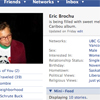 I’m still on Facebook, though all I ever do is update my status message every couple of days, which I see as kind of a creative exercise. I don’t even read the updates of people on my network very often. However, I still find it kind of fascinating — I think its genius is that it’s the first web page on the internet that is explicitly targeted toward the extroverted majority of human beings. The people who (unlike, say, me) honestly want to know what all their friends got up to last weekend, and who (also unlike me) typically do something with their free time that’s more sociable than watching DVDs or reading comics and books about statistics and economics.
I’m still on Facebook, though all I ever do is update my status message every couple of days, which I see as kind of a creative exercise. I don’t even read the updates of people on my network very often. However, I still find it kind of fascinating — I think its genius is that it’s the first web page on the internet that is explicitly targeted toward the extroverted majority of human beings. The people who (unlike, say, me) honestly want to know what all their friends got up to last weekend, and who (also unlike me) typically do something with their free time that’s more sociable than watching DVDs or reading comics and books about statistics and economics.